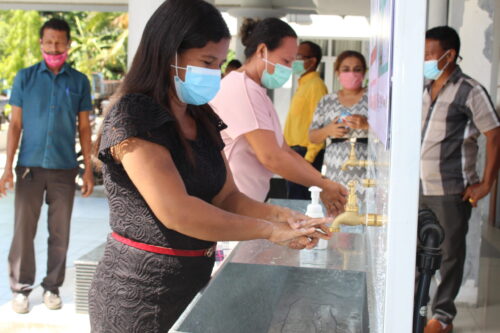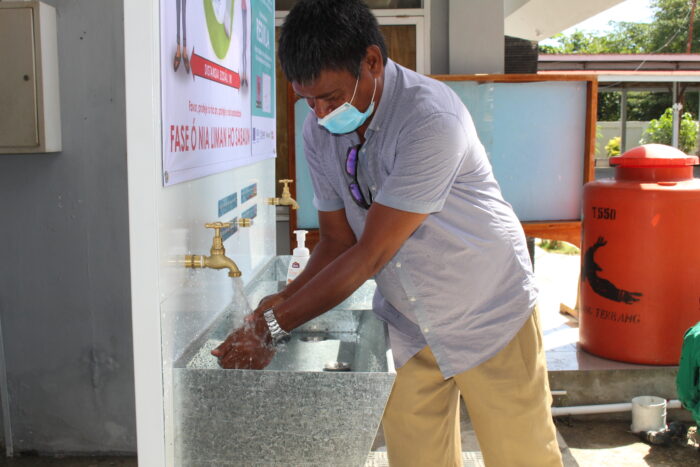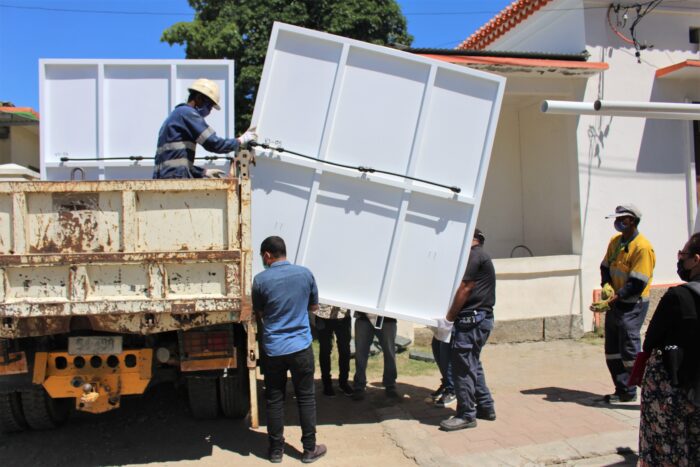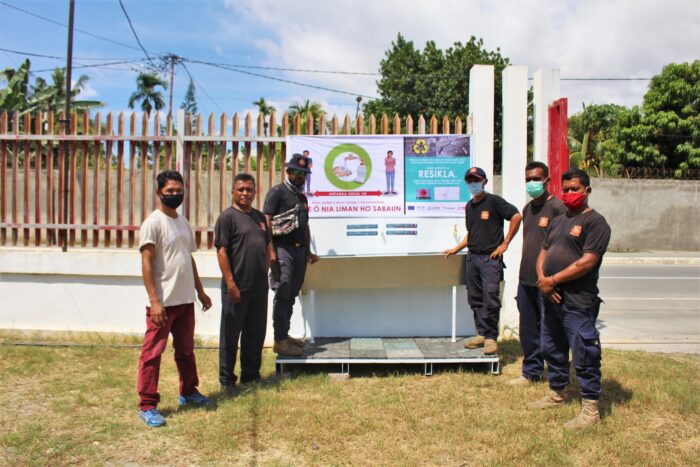Timor-Leste: Paving the Way on Plastics Recycling

A staggering 70 tons of plastic waste is generated on a daily basis in Timor-Leste, a population of 1.3 million, threatening human health, wildlife, and tourism. Plastic is burned in rubbish piles, clogs critical drainage infrastructure, and washes up on its once pristine beaches. This creates risks to human health and safety and jeopardizes growth potential in the tourism sector.
The Plastics Solutions Alliance (PSA), which was created in October 2019, is addressing this by bringing together two of the largest companies in Timor-Leste—Heineken and Timorese construction company Caltech—with USAID, Mercy Corps, and the Korean International Cooperation Agency (KOICA) to create a value chain for reducing single-use plastic. The alliance supports the Government of Timor-Leste’s commitment to becoming “plastic neutral” by 2030, with no piece of plastic entering the environment as waste.
USAID and partners are leading private sector-led, market system-driven solutions to plastic waste. Through a series of co-creation discussions, USAID and private sector partners identified opportunities for the alliance to help address the issue of plastic waste by turning plastic refuse into products. Under the PSA, for example, Caltech has established a plastic waste recycling facility that turns the waste into road resurfacing materials such as paving stones and aggregate for paving.
Within its first week of operation, Caltech used up a stockpile of 150,000 used plastic water bottles and issued a call for more. To provide a steady supply of plastic waste to process, Heineken is investing in aggregation and first stage processing for local small- and medium-sized enterprises (SMEs).
Small- and medium-sized enterprises play an important role in reducing plastic waste in Timor-Leste—a role that will grow as the alliance increases demand for recycled products and leverages innovation to reduce production costs. Heineken is investing in SMEs to increase the supply of plastic waste to processors by providing in-kind support in the form of recycling machines and training on machine operation and maintenance, and health and safety. In addition, numerous SMEs are producing plastic alternative products, like bamboo straws, cassava shopping bags, biodegradable food packaging, reusable water bottles, and palm bark plates.
The alliance has successfully supported a number of uses for recycled plastic waste. As of September 2020, 16,850 pounds or about 395,000 water bottles have been recycled into 4,787 pavers, with 2,483 sold mostly to embassies and Caltech Construction project sites. In response to the COVID-19 pandemic, some 30 handwashing stations made of upcycled plastic pavers were installed, and Caltech installed stairs made of plastic pavers at the entrance of a Timorese National Police building.
The alliance continues to contribute to finding new ways to reduce plastic waste. For example, Heineken has contributed shredded plastic for asphalt road research through a partnership with the University of Timor-Leste.
This market-based approach to a development challenge is leading to job growth, inputs for construction companies, an expansion of Timor-Leste’s manufacturing base, and reducing the plastic waste that threatens the country’s environment and tourism industry.
This blog was originally published by USAID Private Sector Engagement on Exposure.




